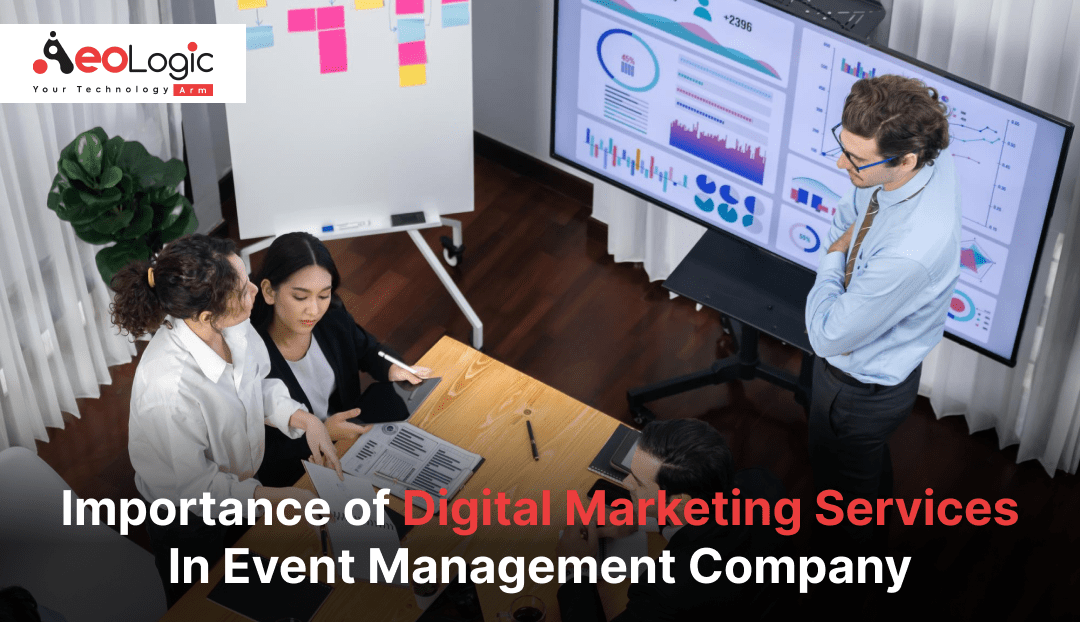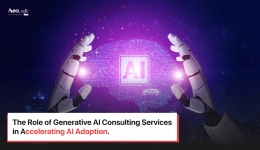In the modern event management landscape, digital marketing has become an indispensable tool. Its role in establishing and promoting an event’s online presence cannot be overstated. From developing dedicated websites to leveraging social media platforms, the importance of digital marketing services provides event managers with a comprehensive toolkit to enhance visibility and engagement.
Also read: Why Your Business Needs a Digital Marketing Agency
The Importance of Digital Marketing Services in Event Management
The importance of digital marketing services in event management has grown significantly as more individuals turn to the internet and social media for event information. In an era where digital presence is crucial, a well-executed digital marketing strategy can make a substantial difference in the success of an event.
Expanding Reach:
Digital marketing enables event managers to extend their reach beyond traditional methods. By utilizing various online channels, such as social media, email marketing, and digital ads, event organizers can target a global audience. This expansive reach is crucial for attracting diverse attendees and ensuring maximum participation.
Engaging the Audience
Effective engagement with the audience before, during, and after the event is another critical aspect of digital marketing. Social media platforms facilitate real-time interactions, allowing event organizers to address queries, build excitement, and maintain ongoing conversations with attendees. Post-event follow-ups through email marketing keep the audience engaged and foster long-term relationships.
Cost and Time Efficiency
Compared to traditional marketing techniques, digital marketing is often more efficient and cost-effective. It allows for precise targeting, enabling event managers to allocate their resources more effectively. Additionally, digital marketing tools provide easy tracking and analytics, helping organizers to monitor campaign performance and make data-driven decisions.
Differentiation and Branding:
In a crowded market where many events compete for attention, standing out is essential. Digital marketing helps in creating a unique and memorable brand for the event. By crafting distinctive messaging and using creative content, event managers can differentiate their event and capture the interest of potential attendees.
Developing a Digital Marketing Strategy for Events
Given the importance of digital marketing services, developing a well-structured strategy is vital for success. Here are five steps to creating an effective digital marketing plan for your event:
Define Clear Goals and Objectives:
Before diving into the importance of digital marketing services and its tactics, it’s crucial to establish clear goals and objectives. Determine what you want to achieve with your campaign—whether it’s increasing brand awareness, generating leads, or selling tickets. Clear goals will guide your strategy and help measure success. For example, if your goal is to boost ticket sales, your strategy might focus on targeted advertising and special promotions.
Choose the Right Digital Channels:
With a plethora of digital marketing channels available, selecting the ones that align with your target audience and budget is essential. Consider the following options:
– Email Marketing: Effective for sending personalized messages and updates.
– Social Media Marketing: Platforms like Facebook, Instagram, and LinkedIn offer robust tools for engagement and promotion.
– Pay-Per-Click Advertising: Useful for reaching specific demographics and generating immediate traffic.
– Content Marketing: Includes blogs and articles that provide valuable information and drive traffic to your event’s website.
Choose channels that best match your audience’s preferences and behaviors. For instance, younger audiences might engage more with TikTok and Instagram, while professionals might be more active on LinkedIn.
Create Engaging Content:
Content is at the heart of digital marketing. To capture your audience’s attention, your content needs to be engaging, relevant, and valuable. Develop a content plan that includes:
– Event Announcements: Share key details about the event, including dates, location, and speakers.
– Behind-the-Scenes Content: Offer a glimpse into the event preparation process.
– Interactive Content: Host polls, quizzes, or live Q&A sessions to engage with your audience.
Ensure that your content is optimized for each platform and aligns with your overall event branding. High-quality visuals, compelling copy, and clear calls-to-action will enhance the effectiveness of your content.
Promote Your Event Effectively:
Promotion is crucial for driving attendance. Utilize a combination of digital marketing strategies to ensure broad and effective reach. Consider the following tactics:
– Social Media Campaigns: Use targeted ads and organic posts to build awareness and encourage shares.
– Email Campaigns: Send regular updates and exclusive offers to your subscriber list.
– Influencer Partnerships: Collaborate with influencers to reach their followers and boost credibility.
Additionally, leverage emerging platforms like TikTok and Instagram Reels for rapid and engaging content distribution. These platforms can help you reach a wider audience quickly and effectively.
Measure and Analyze Results:
Evaluating the success of your digital marketing efforts is crucial for continuous improvement. Track key metrics such as website traffic, ticket sales, and social media engagement. Use analytics tools to gather data on campaign performance and identify areas for improvement.
Analyze the results to understand what worked well and what didn’t. For example, if social media ads generated significant engagement but low ticket sales, consider adjusting your targeting or ad content. Continuous monitoring and adaptation will help optimize your strategy and enhance future campaigns.
The Future of Event Management with Digital Marketing
As the event management industry evolves, digital marketing solutions is becoming increasingly integral. Its efficiency, cost-effectiveness, and measurability make it a powerful tool for modern event promotion. The shift towards digital marketing reflects broader trends in consumer behavior and technological advancement.
In the future, event managers will likely continue to rely heavily on digital marketing strategies to stay competitive. Innovations in digital technology, such as augmented reality (AR) and virtual reality (VR), may further enhance event experiences and marketing efforts. Embracing these trends and integrating them into your digital marketing strategy can offer additional opportunities for engagement and differentiation.
Also read: Digital Transformation Examples for Business Success
Conclusion
In conclusion, digital marketing is essential for successful event management. By leveraging a well-crafted digital strategy, event organizers can reach a broader audience, engage effectively, and achieve their objectives more efficiently. As the digital landscape continues to evolve, staying updated with the latest trends and technologies will be crucial for maintaining a competitive edge and driving event success.







